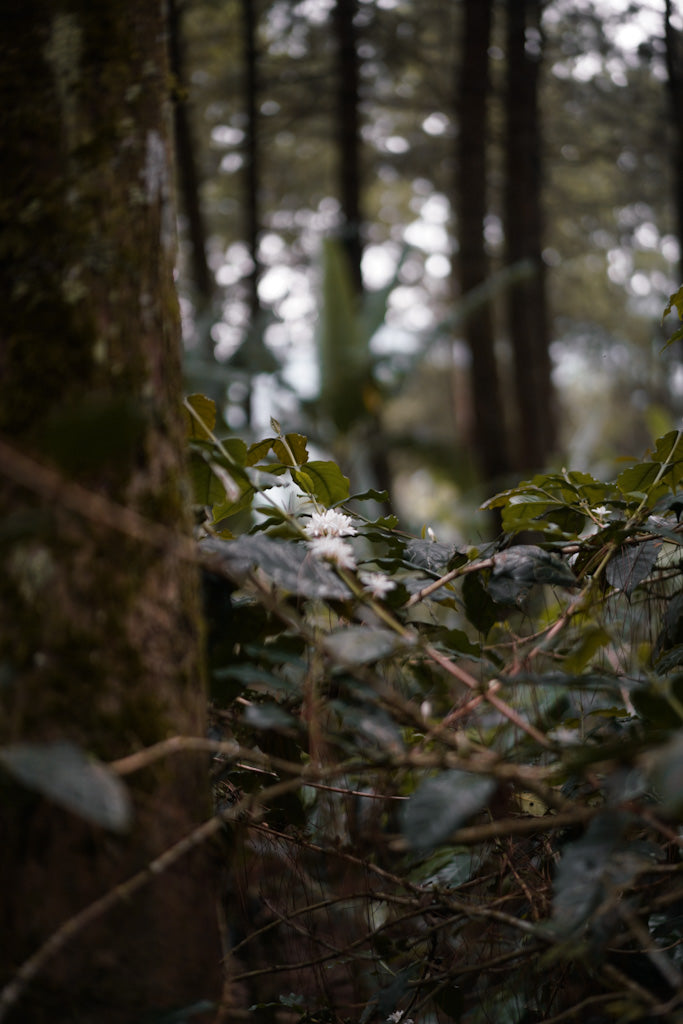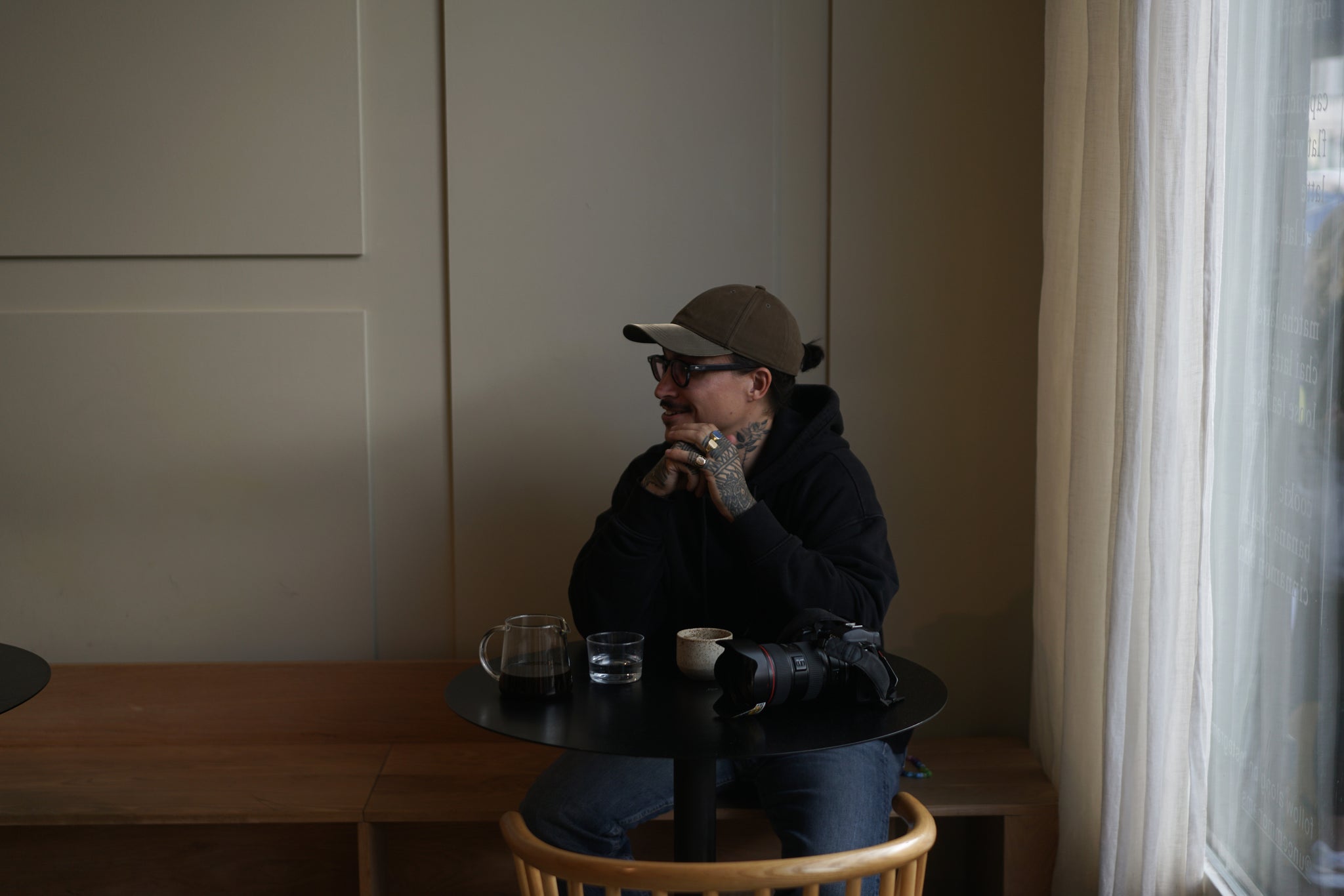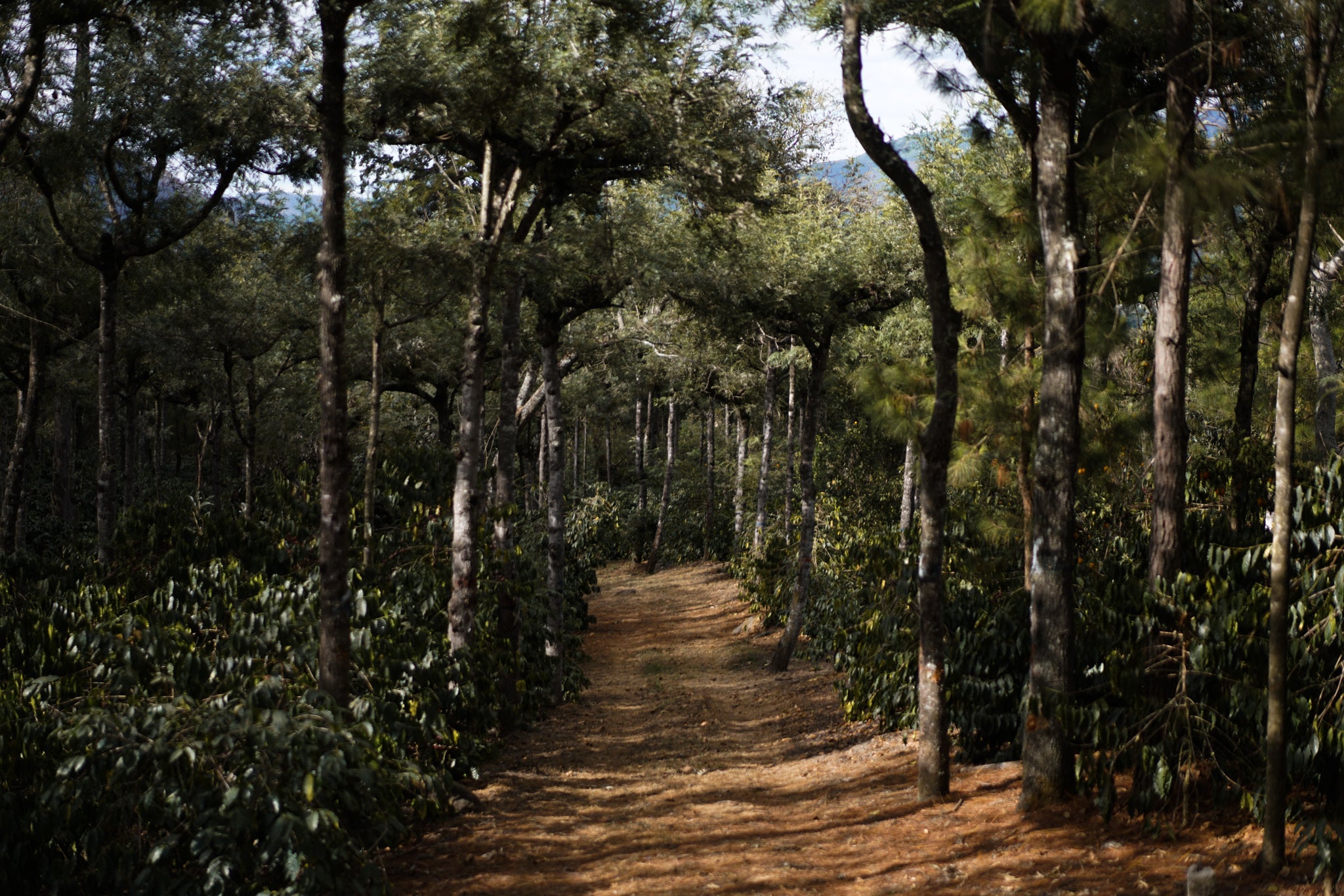“Kamala means lotus as well as pale red in Sanskrit. This taste profile is our take on what Indonesian coffees could be under innovative and experimental post-harvest processing techniques.”
Last October we had the pleasure of meeting the producers and community of Kamala Loa. After a windy 4 hour drive up from Bandung we found ourselves immersed in the thick forest of West Java. Greeted with open arms the team were very excited for us to try all their coffees! We were impressed with their experimentations and different lots they had to offer.
The Sunny collective is made up of farmers, processors and roasters whose main goal is to produce some of Indonesia’s highest quality coffees! It’s fantastic to see the producers growing, processing, milling, roasting, and brewing their own coffee all in one place. Their dedication and appreciation for coffee is truly admirable.
After a few brews we jumped in the back of their pick up and climbed the trails. We found ourselves in more of a forest than a typical coffee farm. Gum and pine trees towered over the coffee trees providing essential shade for even, slow maturity of the cherries. It was wonderful to see the ecosystem around the farm intact, bursting with biodiversity. The varieties found here are Typica and Bourbon - some of our favourites!
Mbah Acu (on the left of the picture) is head of the forest village community organisation and is responsible for maintaining biodiversity in the village. As we explored the farm further we noticed some trees had leaf rust or a lack of leaves. We spoke to Ibu Ine (on the right of the picture) to see what challenges she faced on her farm and how they are combatting it. Ibu explained that the crop yield declined considerably compared to the previous years, likely due to shifts in the climate.
This presented significant challenges for both her and the processors, as they needed to allocate additional funding to purchase coffee cherries. To combat the decrease in yield they distributed manure to nurture the affected trees. The sunny collective also organised educational initiatives guiding proper care and maintenance of coffee trees in response to changes in the climate. She already sees an improvement in the farm health but doesn’t expect an instant increase in yield. However, she is sure in a couple years time they will see the benefit.
The Sunny collective say a holistic approach is essential for the farms and their communities to flourish. This includes facilitating accessible education on tree care, promoting sustainable coffee sourcing practices, improving organic fertiliser distribution, and fostering harmonious collaboration through regular discussions to address the farmers' needs and goals.
The coffee we are featuring from Kamala Loa is inoculated with selected yeasts and bacterias. Following harvesting, the team thoroughly wash the cherries and pick any unripe cherries before transferring the ripe ones in fermentation tanks. For this particular lot they applied inoculant #03, which is a mix of Pichia kudriavzevii yeast, Klebsiella pneumonia bacteria and three types of lactic acid bacteria (LAB). After sealing the tanks they let the coffee cherries ferment for 60 hours.
Once the target pH level is achieved, the cherries go straight to drying on raised beds to allow air to flow around the fruit and enable an even drying process for around 3-4 weeks. During this step, the cherries are turned or raked several times a day to help cherries dry more evenly.
After the drying process is complete, the parchment rests for 1 month before dry hulling and the final manual sorting process.
We are thrilled to be working with Sunny collective for the first time this year! We look forward to trying more of the experimental and dynamic coffees they have to offer!









